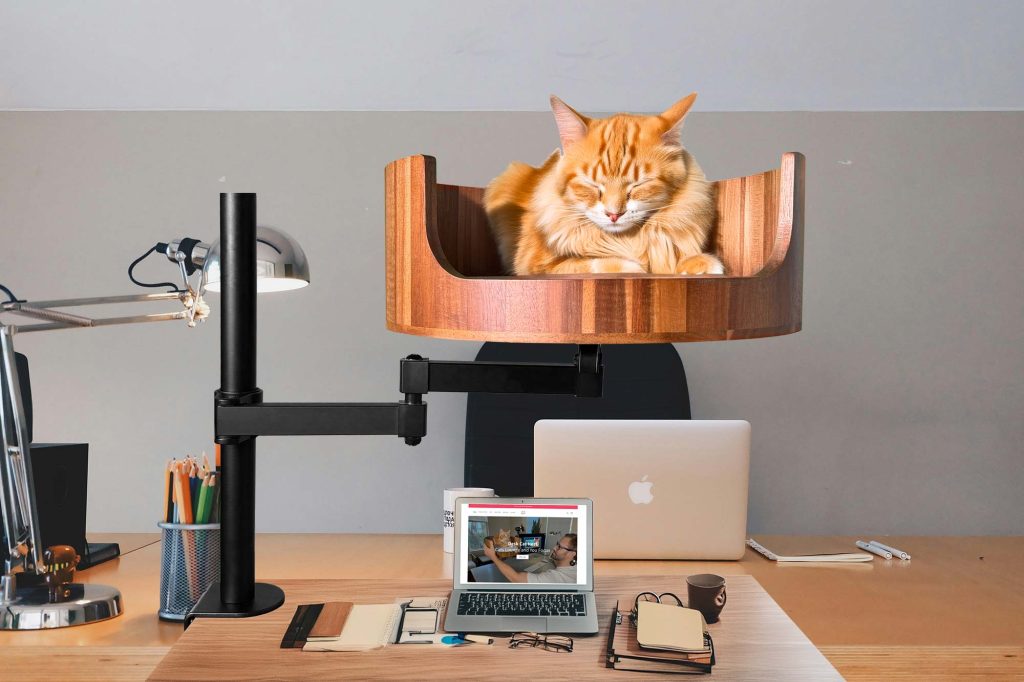Is your furry feline leaving you surprises on your bed in the form of pee puddles? Before you freak out and send your cat off to the pound, it’s important to understand the reasons behind this behavior. Cats can be finicky creatures with their own unique set of needs and behaviors, and peeing on the bed may be their way of communicating something to you. In this article, we will dive into the intricate world of feline behavior to uncover why cats pee on the bed and how you can address this issue effectively.
One common reason for a cat peeing on the bed is marking their territory. Cats are territorial animals by nature, and they may feel the need to assert their presence by leaving their scent in a highly frequented area, such as your bed. Additionally, stress or anxiety can also trigger this behavior in cats. Changes in their environment, such as a new pet, moving to a new home, or even something as simple as a change in your routine, can cause your cat to feel stressed and react by peeing on your bed. Understanding the root cause of this behavior is key to effectively addressing and correcting it, so let’s explore some strategies to help you and your cat live in harmony.
1. Cats may pee on your bed due to stress, anxiety, or a medical issue, not out of spite.
2. Understanding your cat’s behavior and addressing any underlying causes can help prevent this unwanted behavior.
3. Providing a comfortable and safe environment, as well as plenty of litter boxes, can deter your cat from urinating on your bed.
4. Consulting with a veterinarian is crucial to rule out any potential health issues contributing to your cat’s behavior.
5. Taking steps to create a positive and stress-free environment for your cat can help ensure they feel secure and happy in your home.
Causes of Cat Peeing on Bed
One possible reason for a cat peeing on the bed is a medical issue, such as a urinary tract infection or kidney disease. Another reason could be behavioral, such as stress or anxiety. Cats are very sensitive animals, and changes in their environment or routine can trigger this behavior. It’s important to rule out any medical problems first before addressing the behavioral issues.
Marking Territory
Cats are territorial animals and use urine to mark their territory. They have scent glands in their paws and face, but when they pee on something, it’s a stronger statement. This can be a sign of dominance or a way to comfort themselves in an unfamiliar environment. Providing your cat with a designated space, such as a cat tree or scratching post, can help reduce the likelihood of them marking your bed.
Litter Box Issues
Sometimes, a cat peeing on the bed can be a sign of litter box aversion. Cats are very particular about their bathroom habits and may be avoiding the litter box for various reasons. It could be as simple as not liking the type of litter or location of the box, or it could be a sign of a more serious problem. Make sure to keep the litter box clean and in a quiet, accessible location for your cat.
Behavioral Modification
If your cat is consistently peeing on the bed, it’s important to address the behavior through positive reinforcement and environmental changes. Punishing your cat for this behavior will only make matters worse. Instead, try providing them with more enrichment, such as interactive toys or puzzle feeders, to keep them mentally and physically stimulated. Consulting with a veterinarian or animal behaviorist can also provide valuable insights and guidance in modifying your cat’s behavior.
Frequently Asked Questions
Why does my cat pee on the bed?
There are several reasons why a cat may pee on the bed, including stress, a medical issue such as a urinary tract infection, or territorial marking. Providing a comfortable and secure place for your cat to rest, like the Desk Cat Nest, may help alleviate stress-related peeing.
Will the Desk Cat Nest prevent my cat from peeing on the bed?
While the Desk Cat Nest can provide a cozy and safe space for your cat to relax, it may not completely prevent them from peeing on the bed. It is important to address the underlying reason for your cat’s behavior, whether it be stress, a medical issue, or something else.
How can I train my cat to use the Desk Cat Nest instead of peeing on the bed?
Encouraging your cat to use the Desk Cat Nest can be done by placing their favorite toys or treats inside, praising them when they use it, and ensuring they have regular access to it. Additionally, it may be helpful to clean any areas where your cat has previously peed to remove any lingering scent that may attract them to pee there again.
Is the Desk Cat Nest easy to clean?
Yes, the Desk Cat Nest is designed to be easy to clean. The cushion cover is removable and machine washable, and the nest itself can be wiped down with a damp cloth for quick and easy cleaning.
In conclusion, the Desk Cat Bed offers a valuable solution to the common problem of cats peeing on beds. With its comfortable and secure design, this bed provides a designated space for your feline friend to relax and sleep peacefully. By providing a cozy and inviting alternative to your bed, the Desk Cat Bed can help prevent unwanted accidents and keep your furniture clean and odor-free. Invest in the Desk Cat Bed today to create a stress-free environment for both you and your beloved pet.


